In my android project I have overriden onCheckedChanged() like so:
var numberOfPlayers: Int = 0
override fun onCheckedChanged(group: RadioGroup?, checked: Int) {
val chosen = activity?.findViewById<RadioButton>(checked)?.text
numberOfPlayers = chosen.toString().toInt()
}
And I'm confused why numberOfPlayers isn't underlined red as chosen may be null - therefore I'm calling toString() on a possible null value. Why won't this cause a NullPointerException?
